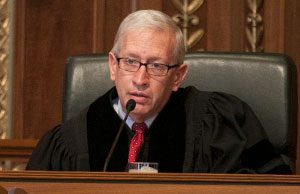 Every parcel of real property in Ohio undergoes a major “reappraisal” by the County Auditor’s office every six years and then a minor “update” in the three years in the middle of that six-year cycle. Different counties in Ohio are on a different six year and three year cycle.
Every parcel of real property in Ohio undergoes a major “reappraisal” by the County Auditor’s office every six years and then a minor “update” in the three years in the middle of that six-year cycle. Different counties in Ohio are on a different six year and three year cycle.
Below is a list of the counties going through either a major “Reappraisal” or a minor “update” this year. These values will appear on your January 2018 tax bill.
In Southwest Ohio, Hamilton County is undergoing a full reappraisal this year. Butler and Clermont Counties are update counties.
It is important to note that because these counties will be starting new triennials, property owners may bring a complaint before the Board of Revision regardless of whether a prior challenge has been brought. Every property owner has a right to challenge her property assessment before the Board of Revision in the new triennial.
While property owners in Hamilton and Clermont Counties have already received notices of the tentative values for the new triennial, the official notice of the 2017 value will come with your January 2018 tax bill. Remember you will have until the end of March 2018 to challenge the 2017 valuation.
Finney Law Firm will be giving presentations on the Board of Revision process later this year. If you are interested in attending a presentation, contact us here. Learn more about Finney Law Firm’s property tax practice here.
The schedule of counties starting a new triennial this year follows:
Reappraisal Counties
Auglaize
Clinton
Darke
Defiance
Delaware
Franklin
Gallia
Geauga
Hamilton
Hardin
Harrison
Henry
Jackson
Licking
Mahoning
Mercer
Morrow
Perry
Pickaway
Pike
Preble
Putnam
Richland
Seneca
Shelby
Trumbull
Vanwert
Wood
Update Counties
Ashland
Ashtabula
Athens
Butler
Clermont
Fulton
Greene
Knox
Madison
Montgomery
Noble
Summit
Wayne







